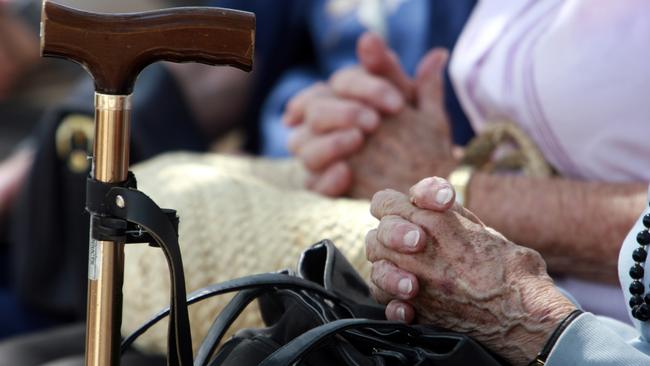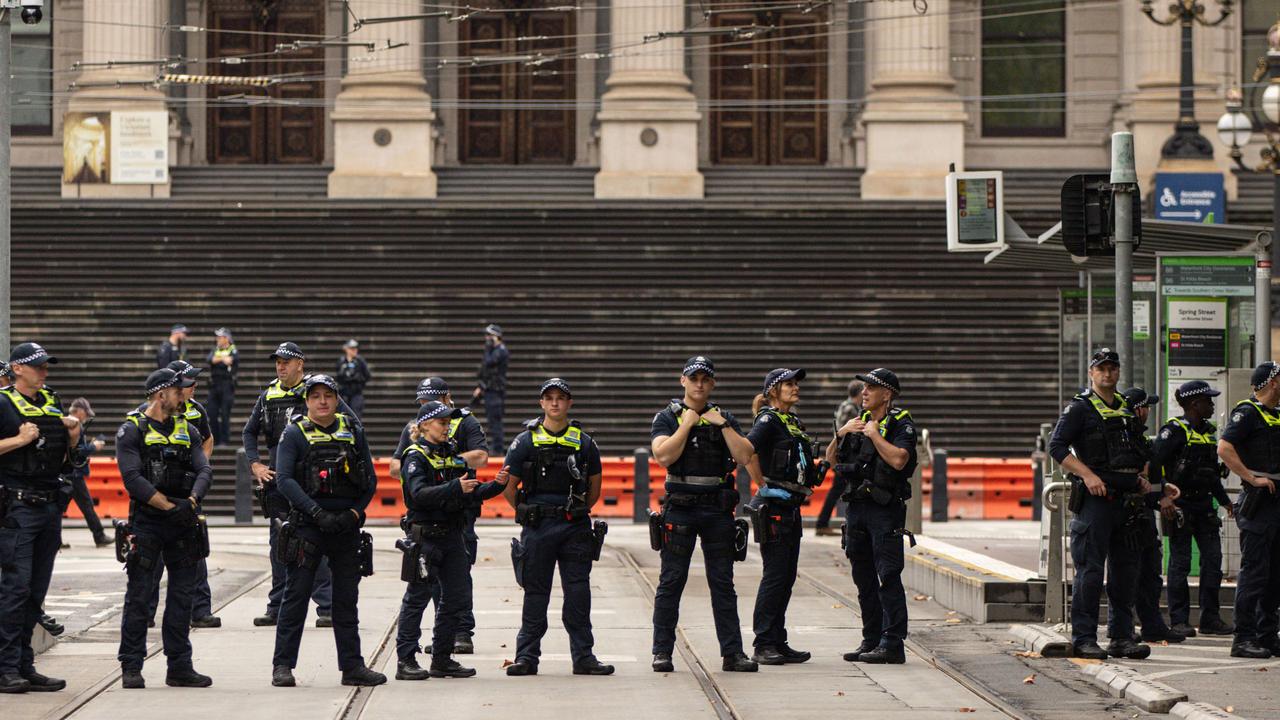Eight elderly Victorians died from resident-on-resident aggression in just nine months. A coronial inquest into the deaths has begun
Eight elderly Victorians died from resident-on-resident aggression in just nine months. A coroner is examining how aged care facilities can better protect their residents.

Police & Courts
Don't miss out on the headlines from Police & Courts. Followed categories will be added to My News.
A coroner is examining how aged care residents can be better protected after eight elderly Victorians died from “resident-on-resident” aggression in just nine months.
The deaths occurred at six separate aged care facilities in 2021, after the residents, many frail and vulnerable, were pushed or struck by other residents with cognitive impairments including dementia.
A coronial inquest into the tragedies began on Monday, examining if gaps in care or interventions contributed to their deaths and assessing the level of care each resident was receiving and whether they were appropriately placed within the facility.
The Coroner’s Court heard around 240,000 people were living in residential aged care across Australia in 2021, with an estimated 54 per cent — and possibly as many as 70 per cent — living with dementia.
Counsel assisting the coroner, Naomi Hodgson, said research showed nearly 90 per cent of those involved in fatal resident-on-resident incidents had been diagnosed with dementia.
She stressed that the individuals who caused harm — referred to as “counterparts” in the inquest — should not be viewed as having intended to injure others or understanding the consequences of their actions.
She added not all incidents stemmed from angry confrontations.
“These cases involve cognitive impairment and the presence of dysexecutive function in individuals which results in impulsive behaviour,” she said.
“While it sometimes may involve a level of frustration or anger on the part of the person who pushes or strikes another person, it may instead be that they are simply impulsively pushing out or past a person to achieve their immediate goal.”

Between March and December 2021, Angela Linkiewicz, Caterina Kamber, Michael Karonias, Alfred Roy, Norat Manouelian, Beverly Bartlett, Kevin Withers and George Ward died from resident-on-resident aggression incidents.
The incidents occurred at Shepparton Villages, Samarinda Lodge in Ashburton, the Noel Miller Centre in Glen Iris, the Peter James Centre in Forest Hill, Narracan Gardens in Newborough and The Alexander Aged Care Centre in Clayton.
Five cases involved a hip or pelvis fracture as a result of a fall following a push, while the other three resulted in subdural haematomas from falls following a push.
“In each case it appears that if it happened to a younger person without comorbidities, the incident may not have resulted in death or even injury,” Ms Hodgson said.
“As such the consequences of impulsive or aggressive behaviour in aged care residents is far more significant ... this makes the importance of finding ways of avoiding or mitigating such behaviour vitally important.”
The court heard personal history, such as past trauma or cultural background, physiological issues like unmanaged pain or side effects from medication, and environmental conditions, including lighting, noise, and clutter had been identified as risk factors.
Ms Hodgson said a three-tiered federal government care framework was already in place, including advisory services, response teams and a Dementia Care Program which operates specialised units for high risk residents.
But even when all the specialised units become operational, she said fewer than 300 beds would be available across Australia.
The inquest will examine whether better care or earlier interventions could have prevented the fatal incidents, including behavioural or environmental measures for both the deceased residents and their counterparts.
Deputy state coroner Paresa Spanos will assess whether, in hindsight or under current systems, different actions might have avoided the deaths.
The inquiry will seek to identify common themes or failings across the cases and determine whether existing aged care frameworks — particularly those concerning residents with dementia — are sufficient to prevent future harm.
Recommendations may be made if current services are found to fall short.
The inquest, which is expected to go for five days, continues.





